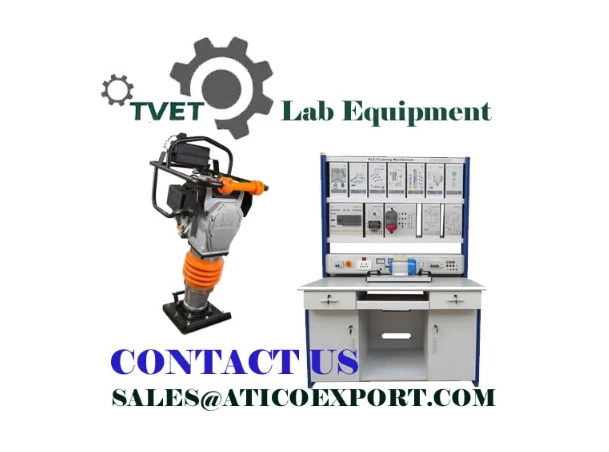Testing lab equipment refers to the set of tools and instruments that are the most dependable in a scientist's or engineer's toolbox. Testing lab equipment is specialized instruments that quietly and accurately measure every material aspect to ensure the quality and safety of products we use every day. Testing lab equipment manufacturers and suppliers in India are revolutionizing the way researchers and engineers conduct basic tests to complex experiments. These tools play a crucial role in our quest for knowledge and safer, better products."
Indian Industries Collaborating With Testing Lab Equipment Manufacturers
Indian industries collaborate with top testing lab equipment manufacturers in India for several compelling reasons:
Quality Assurance: Collaborating with established testing lab equipment manufacturers ensures Indian industries access to high-quality and reliable testing equipment. The high-quality and reliable testing equipment acts to their advantage as it helps maintain the quality and safety of their products, meeting domestic and international standards. Access to Advanced Technology: It is the forte of topmost testing equipment manufacturers to invest in research and development to stay at the forefront of technology. Specific industries such as aerospace, construction, and automation are only keen to collaborate with these manufacturers for access to cutting-edge equipment that enhances their production processes and product quality.Compliance with Regulations: Many industries in India are subject to strict regulatory requirements and standards. Partnering with top testing equipment manufacturers and suppliers ensures the companies ensure that their final products meet these regulations, reducing the risk of non-compliance and potential legal issues. Efficiency and Productivity: Modern testing equipment supports automation and streamlining of various processes, increasing efficiency and productivity. No industry wants to waste their time and resources in streamlining systems. Thus, collaborating with testing lab equipment manufacturers leads to the integration of such equipment that enhances efficiency and productivity at every step of manufacturing till final delivery. Cost-Effective Solutions: Such collaborations lead to cost-effective procurement options. Yes, big and significant industries that are the major players in the market place bulk orders with trustworthy testing lab equipment suppliers often resulting in better favorable pricing and financing arrangements. Reputed testing lab equipment exporters and suppliers are known for their fair trade practices; thus, partnering with them is all that industries need. Global Competitiveness: The industrial sector in India is growing massively. Various Indian industries are competing in the global market. It means the quality of the final product needs to be of the highest quality that gives an edge to our products in the international market. For this, the Indian industries need access to state-of-the-art equipment and technologies. This access is made feasible by industry experts, top Testing Lab Equipment Manufacturers, and suppliers in India Educational Lab Equipment.
Collaborating with testing lab equipment manufacturers and suppliers empowers Indian industries to ensure product quality, meet regulatory requirements, boost efficiency, and stay competitive in a rapidly evolving global market.
Industries catered by Testing Lab Equipment Suppliers & Exporters
Diverse industries are catered to by testing lab equipment suppliers with high-quality testing equipment. Here is a list of the equipment, along with their purpose. In brief, the equipment is supplied to varied industries.
Pharmaceuticals and HealthcareSpectrophotometers: Used for drug analysis and quantification.HPLC (High-Performance Liquid Chromatography): Ensures the quality of pharmaceutical formulations.Microbiological Incubators: For microbial testing and growth.ELISA Readers: Used in clinical diagnostics and immunology research.Automotive:Dynamometers: Measure engine performance and emissions.Oscilloscopes: Analyze electrical signals in automotive systems.Tire Testing Machines: Assess tire performance and durability.Aerospace:Tensile Testers: Determine material strength and durability.Wind Tunnels: Simulate aerodynamic conditions for aircraft testing.Non-destructive testing (NDT) Equipment: Detect defects in aerospace components.Flight Simulators: Train pilots and test flight controls.Electronics:Oscilloscopes: Analyze electronic signal waveforms.EMC (Electromagnetic Compatibility) Test Equipment: Ensure electronics meet electromagnetic interference standards.Soldering Stations: Used in electronics assembly and repair.Environmental Test Chambers: Test electronics under various environmental conditions.Environmental and Water Quality:Water Quality Analyzers: Measure parameters like pH, turbidity, and dissolved oxygen.Gas Chromatographs: Analyze environmental samples for pollutants.Meteorological Instruments: Measure weather parameters for environmental monitoring.Soil Testing Equipment: Assess soil properties for environmental studies.Food and Beverage:Gas Chromatography-Mass Spectrometers (GC-MS): Used in food safety and flavor analysis.pH Meters: Monitor pH levels in food and beverages.Texture Analyzers: Assess food texture and consistency.Sensory Testing Equipment: Evaluate taste and sensory characteristics.Material Testing:Universal Testing Machines: Measure material properties like tensile strength and hardness.X-ray Fluorescence (XRF) Analyzers: Analyze material composition.Impact Testers: Assess material toughness and resilience.
Besides these few more industries catered are:
Textile and Apparel Industry:
Testing Lab Equipment: Textile testing machines, colorimeters, fabric strength testers, and pilling testers.Construction and Building Materials:
Testing Lab Equipment: Concrete testing machines, soil compaction testers, moisture meters, and material thickness gauges.
These are just a few examples of the many types of testing equipment used across various industries to ensure product quality, safety, and compliance with industry standards and regulations.


